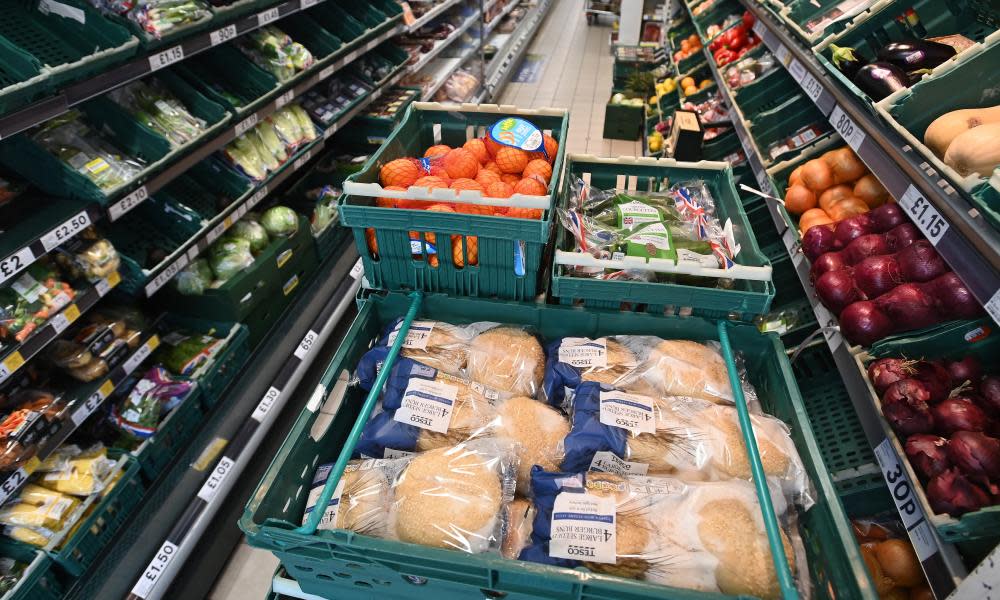Retail sales in Great Britain fall amid supply chain disruption

Retail sales in Great Britain fell unexpectedly in August amid severe supply chain disruption and as consumers switched more of their spending from supermarkets to pubs and restaurants after the easing of pandemic restrictions.
The Office for National Statistics said retail sales dropped by 0.9% in August after a steeper decline of 2.8% in July. While spending remains above pre-pandemic levels, City economists had forecast a rise of 0.5%.
According to the latest snapshot, sales of food dipped by 1.2% on the month after the easing of hospitality restrictions had an impact, with people raising their spending on social activities such as eating and drinking in restaurants, pubs and bars.
However, sales fell across a broad range of other categories, including a sharp fall in sales at department stores as disruption to supply chains weighed on retailers.
Britain’s biggest retailers have warned that stock levels are at their lowest since the 1980s, with the economy coming under growing pressure from shortages of workers and goods because of the fallout from Covid-19 and Brexit.
Retail sales in Great Britain fell unexpectedly in August, by 0.9% compared with July
Standfirst ...
Index 2018 = 100
75
85
95
105
115
Jan 2019
Jul
Jan 2020
Jul
Jan 2021
Jul
Guardian graphic | Source: ONS
Analysts said a post-lockdown rush of spending appeared to be waning, while wet weather kept shoppers away from the high street. Sales dropped on the month for chemists and toy shops, as well as retailers of computers and sports equipment.
Aled Patchett, the head of retail and consumer goods at Lloyds Bank, said: “Pent-up demand and lockdown savings may have sustained growth this summer but this latest set of figures indicates that supply chain issues and weakening consumer demand are beginning to bite.”
Retailers are entering the busiest time of the year, amid warnings that Black Friday and Christmas could be disrupted by stock shortages. “Many big retailers have already issued warnings in relation to their ability to get the right products on shelves, while the UK’s Covid-fuelled appetite for online fulfilment will be tested in the run-up to Christmas if current driver recruitment issues aren’t addressed,” Patchett said.
Reflecting a continued boom in online spending since the start of the pandemic, the ONS said the proportion of retail sales online rose to 27.7% in August, up from 27.1% a month earlier. Online spending had been 19.7% in February 2020, immediately before the coronavirus struck.
Retail sales had risen sharply during the pandemic as locked-down consumers raised their spending on physical items – from TVs and computers, to bikes, furniture, tools and plants – while holidays and trips to the pub were off the menu. A switch to more spending on services was expected as the economy reopened, although analysts said the pace of decline raised questions over the strength of Britain’s economic recovery from the pandemic.
Samuel Tombs, the chief UK economist at the consultancy Pantheon Macroeconomics, said retail sales could come under further pressure because households’ disposable income would decline in the coming months as inflation soars and the government cuts universal credit benefits, closes the furlough scheme, and raises tax on national insurance.
“Accordingly, we continue to think that households’ spending will take until the third quarter of 2022 to return to its pre-Covid peak,” he said.

 Yahoo Movies
Yahoo Movies 
